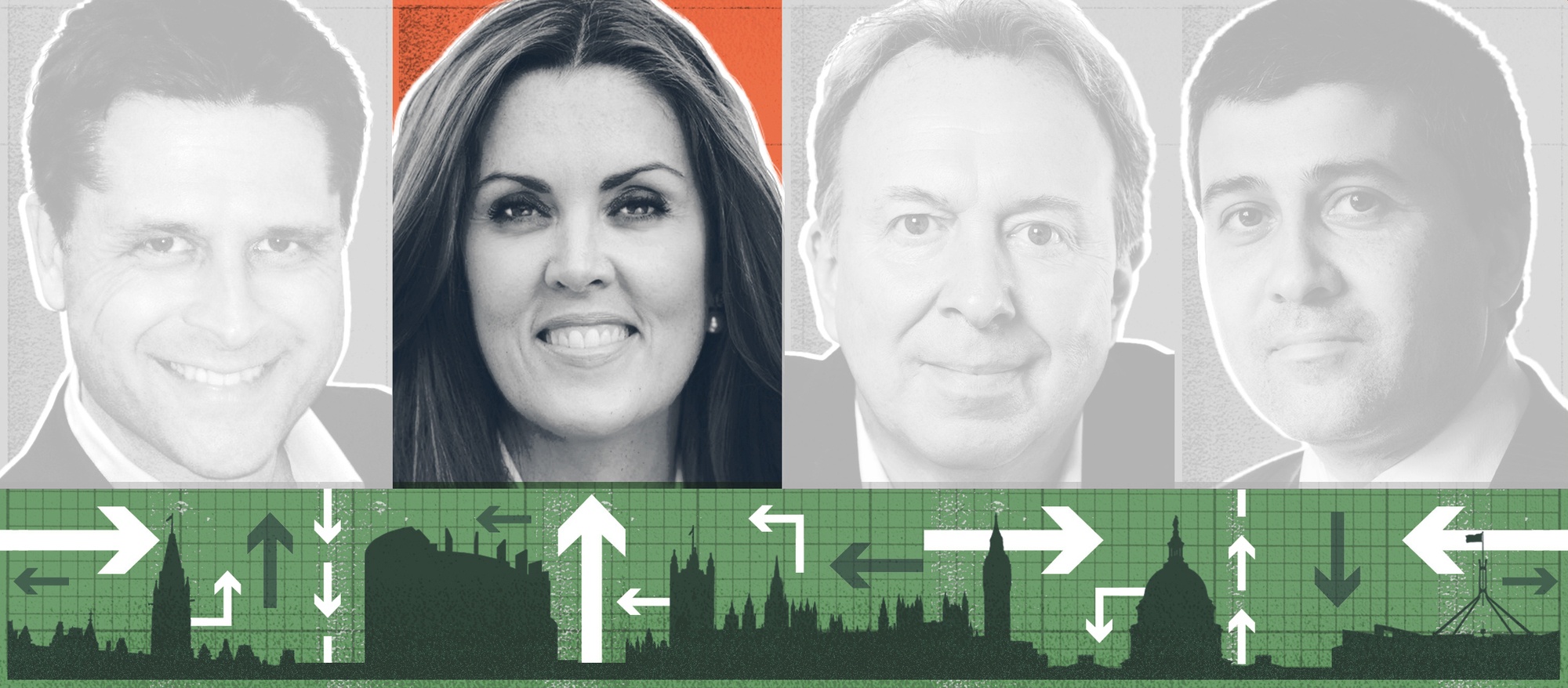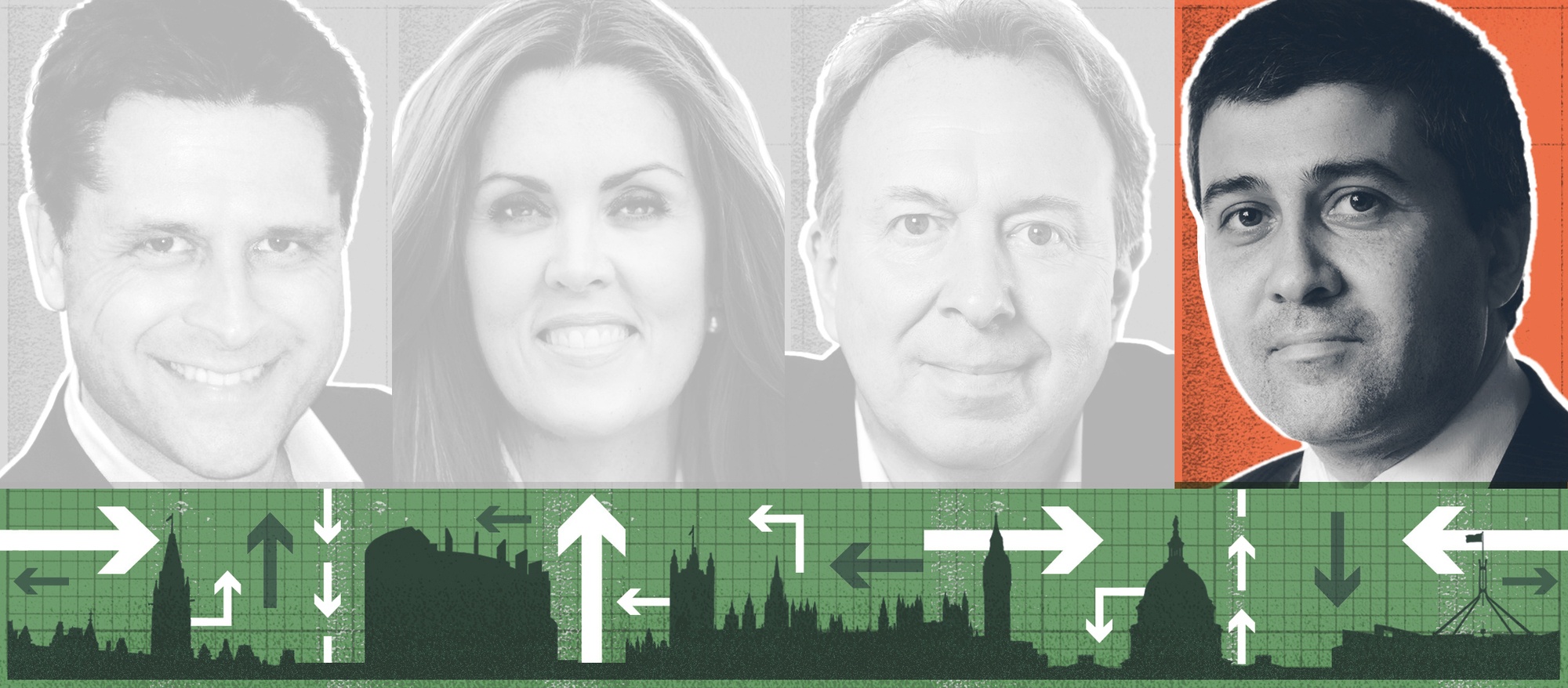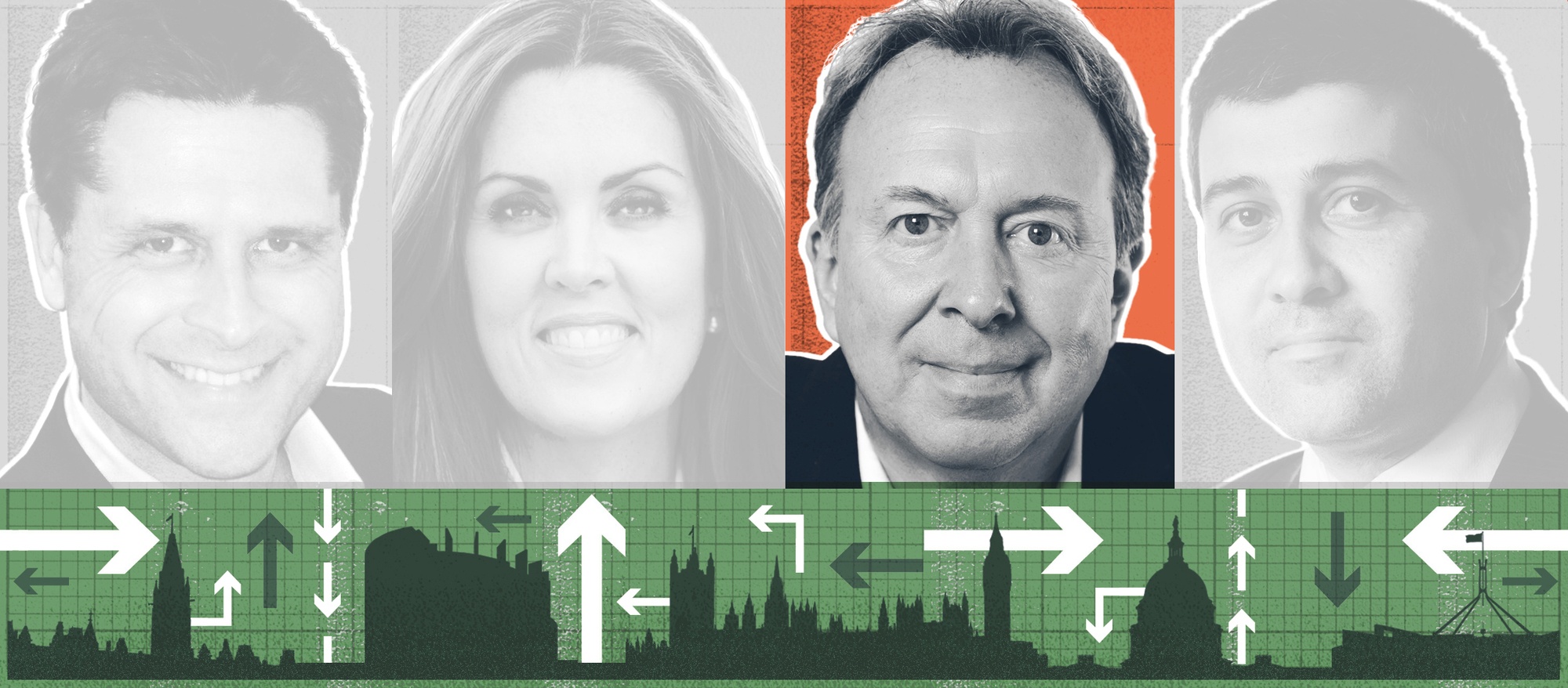Is voter volatility, reflecting general dissatisfaction with the way politics has long been conducted, more significant than a shift to left, right or any other ideological direction?

Peta Credlin: “People haven’t changed. The fundamentals of economics and politics haven’t changed. Perhaps the circumstances of the West are more difficult due to the rise of China and the challenge of Islamism. In the end, the popular mood is a function of how countries respond to challenges as much as the challenges themselves.
“I think it’s more a failure of leadership than any new and more serious crisis. There have been periods of poor leadership before. The 1930s come to mind and in a different way, the 1970s – certainly in Australia. At present, you would have to say that the Left are winning the game organisationally, and have put in place a funding model via trade unions and professional activist groups that leaves the Centre-Right for dead. Conservatives have been complacent and relied on the motivation of aspiration, and the family, to support freedom, the individual and a values-driven leadership – but that’s now under challenge with the way the Left have taken hold of schools, universities and sections of the media.
“I am still optimistic and want to believe that eventually better leaders will make their way forward and a period of eclipse will turn into a period of resurgence. One thing is for certain, the pace is so much faster in political life that we may not see governments survive beyond a single term. Now that’s bearable if you’re looking at five-year parliamentary terms in the UK, even four for the US president, but parlous for good government in the case of Australia’s three-year parliamentary terms.”

Sunder Katwala: “Greater volatility does seem stronger than any directional shift in most countries. Germany looks like an important exception: a stronger economic performance reinforcing strong public support for the broad centre which is deep-rooted in the Federal Republic’s democratic political culture. One reason for the volatility is that we have increasingly polarised politics on very fine margins. In the United States, ever since the Bush-Gore contest of 2000, the nation has been split down the middle. There has been a sense of both sides dialling up the heat: there is a lot of energy in the politics of a culture war on both sides. There are bridge-builders too – Obama certainly tried – but they appear in decline. Non-Trump Republicans have been much more timid than seemed likely in the campaign. And one of the challenges of any effort to depolarise is that neither side wants to risk disarming if the other side is going to stay in the trenches. I am not sure there is quite the same appetite – or institutional encouragement – of an ever-more-heated polarisation outside the United States.
“In Britain, the awareness that we are a more divided, fragmented and anxious society than we perhaps have imagined is a driver to pay more attention to overlooked issues – whether that is immigration or inequality – but I think there is also an aversion to an ever-more-polarised politics. There is a big contrast with how people talk about Brexit on social media and at the school-gate, for example. Many of the political projects with momentum do have the ability to mobilise, but often with an intense appeal to a relatively narrow group, on both the populist right and left. Part of the reason for the volatility and unpredictability is that politicians seem better at engaging their own tribes than finding the common ground across them.”

 Main Edition
Main Edition US
US FR
FR






Join the discussion
Join like minded readers that support our journalism by becoming a paid subscriber
To join the discussion in the comments, become a paid subscriber.
Join like minded readers that support our journalism, read unlimited articles and enjoy other subscriber-only benefits.
Subscribe